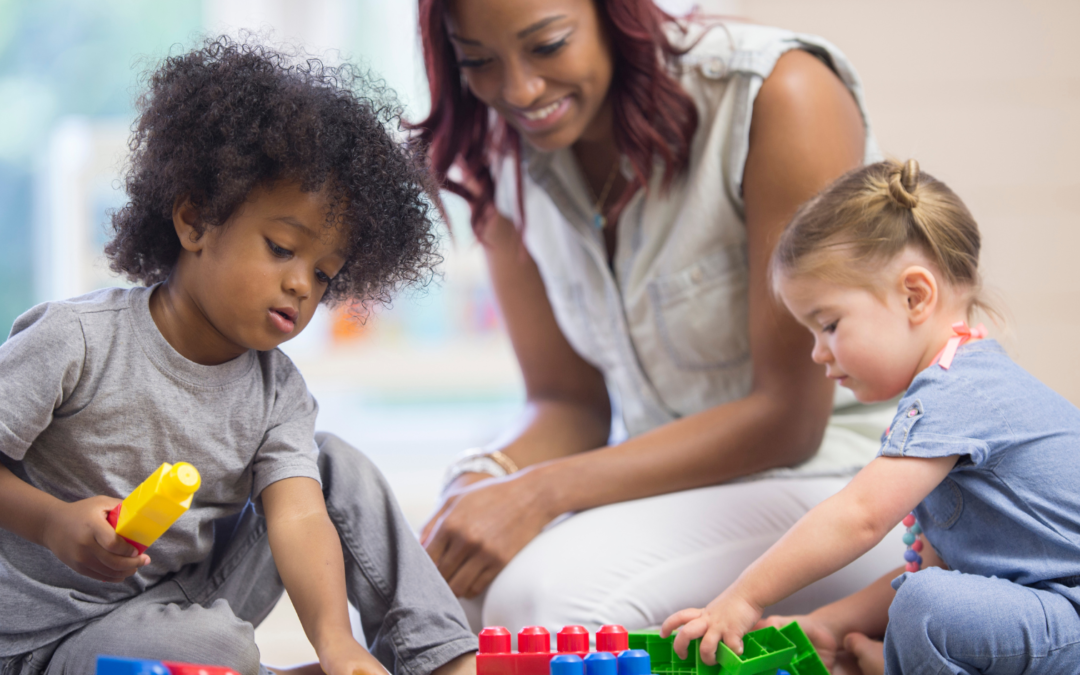Mental health is essential for the overall well-being of kids and young adults alike. In this article, we’ll explore some methods to foster a healthy environment for your child. We will also examine evidence-based approaches to stress reduction, increased resilience, and positive thinking practices to help build strong psychological identities during critical stages of your little one’s development.
Set A Routine For Your Child And Stick To It For Consistency
Children thrive on routine and consistency. Setting a routine for your child provides them with a sense of stability and structure. This can help them feel more secure and confident in their environment, leading to a happier and healthier child.
Establishing a routine that includes regular meal times, playtime, and bedtime is essential to help your child establish healthy habits. However, setting a routine is only half the battle. Reaping the benefits of a routine requires discipline and effort on your part. You must stick to your routine consistently in order for your child to develop healthy habits and set them up for success both now and in the future.
Create Ways For Your Child To Express Their Feelings
An emotionally intelligent child is one who can express their emotions in a healthy and constructive way. One powerful outlet for self-expression is through art, music, or activities. Encouraging our children to explore their creativity can help them process their feelings and sensations more clearly and easily.
Whether it’s painting, drawing, dancing, or playing an instrument, teaching them the tips and tricks of classic interactive family games like blackjack, these avenues create opportunities for children to develop decision-making skills and critical thinking skills as well as channel their energies into positive forms of expression.
By providing them with tools and the freedom to experiment, you can help your child develop into a well-rounded individual who can navigate the complexities of life with greater emotional intelligence.
Involve Your Child in Decision-Making Processes
Most parents find it challenging to let their children express themselves without feeling the need to interject. One important aspect of parenting is learning how to listen to your child without judgment.
By keeping an open mind and actively listening to what your child has to say, you are more likely to understand their point of view and perspective. This is especially effective when dealing with young adults since you are more equipped with information that enables you to come up with solutions to whatever issue they may face.
Making your child feel heard and valued creates a space of trust and openness that can lead to a stronger parent-child relationship. So, the next time your child comes to you with a problem, take your time to listen with an open mind. You may be surprised at what you learn.
Encourage Positive Self-Talk
Like adults, children also experience periods of doubt or insecurity about themselves. However, it’s important to combat those negative thoughts with positive self-talk. A great way to do this is by stating affirmations, which are positive statements that reflect what your child believes about themselves.
For example, encouraging them to say things like, “I am capable and worthy of success” or “I am loved and appreciated by those around me” makes them truly believe in their strengths. Additionally, talking about what makes them unique is another effective method.
Embracing and acknowledging these qualities can boost your child’s self-esteem and help them feel more confident.
Allow Them to Play Outside And Explore Nature
Giving your child the space and time to spend time outdoors and explore nature is an important part of nurturing a healthy and happy child. Ideally, spending time in nature can reduce stress and promote physical activity.
Playing outdoors also helps children develop their curiosity and creativity as they learn about the world around them through exploration and discovery. So, instead of confining your child to indoor activities all day, encourage them to go outside and get some fresh air. You might be surprised at the wonderful things they discover and the memories they create.
Set Limits Around Screen Time and Establish A Balance Between Technology and Physical Activities
In today’s digital age, screens are everywhere. From smartphones to tablets, video game consoles to laptops, it can be hard to tear your child away from screen time addiction. But it’s important to remember that the constant use of screens can adversely affect both physical and mental health. That’s why it’s vital to set limits around their use.
Encouraging physical activities like spending time outdoors, playing sports, or reading a book can help establish a healthy balance between technology and everyday life. So go ahead, unplug, and embrace the world around your child. Your body and mind will thank you.
Final Thoughts
In today’s digital world, it is essential to promote a healthy environment for children’s mental well-being. By setting boundaries and routines while also creating ways of self-exploration and expression, parents can help foster a mentally healthy environment for their children. Listening without judgment, encouraging a positive mindset, controlling screen time, and giving time to explore nature are all great approaches that parents can take that will contribute to their child’s future success.
With open communication within the family, as well as nurturance and consistency of love and guidance, your child can effectively reach their full potential.









